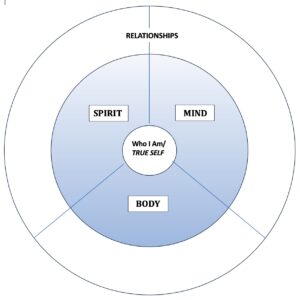In celebration of the recently passed International Women’s Day, and feminism in general, I read Chimananda Ngozi Adichie’s Dear Ijeawele, or A Feminist Manifesto in Fifteen Suggestions. As a feminist raised in the 1960’s and 70’s, I was curious to see whether my views of feminism reconcile with those of contemporaries growing up in this turbulent millennium.
Adichie’s manifesto proved to be an interesting review in that it amounts to a reminder of what it means to live with dignity and grace. Check out how your feminism stacks up.
- Be a whole person.
Do not define yourself by one role — mother, wife, father, husband, career, etc. Love what you do and who you are. Work and motherhood are not mutually exclusive, and domestic work and care-giving are gender-neutral.
- Make existing gender roles neutral by equally sharing them.
Men are not helping women in these roles — domestic work and care-giving — these are shared responsibilities of their relationship.
- Practice self-reliance not gender roles.
Gender roles are not based on truth, they are taught. Never tell a child s/he should not do or be because of their gender. Blue and pink are nature’s colours not gender colours. Active toys and exploration are important for physical and mental well-being of both girls and boys.
- Claim and celebrate your personal power.
Reject Feminism Lite — having to ask permission and be allowed. Conditional female equality implies men are naturally superior and more powerful, but should treat women benevolently.
“Allow” is a troubling word. “Allow” is about power. You will often hear members of
the Nigerian chapter of the Society of Feminism Lite say, “Leave the woman alone to
do what she wants as long as her husband allows.”
- Read, read, read.
Reward your children for reading all kinds of books — novels, histories, autobiographies, etc. — and do the same for yourself.
- Seek truth and question language.
Teach that if you criticize X in women but do not criticize X in men, then you do not
have a problem with X, you have a problem with women. For X please insert words
like “anger,” “ambition,” “loudness,” “stubbornness,” “coldness,” “ruthlessness.”
- Never associate marriage with achievement.
Girls are taught to aspire to marriage whereas boys are not. This results in an uneven exchange in marriage with women sacrificing more — giving up their name, changing their title (and social status) from Miss to Mrs., etc.
A man is Mr. whether married or not, a woman is Ms. whether married or not.
- Practice authenticity and kindness not likeability.
Our life work is not to be liked but rather to live up to our full potential regardless if people like our choices. Being nice to those who harm us is enabling them not empowering us. Honesty and kindness are virtues, whereas niceness is not.
- Create a self-esteem based on humanistic values and dignity.
Deliberately cultivate a sense of oneself as honoring all of life with truth, goodness and beauty. Note the admirable qualities in others and practice developing them and teaching them to children.
When I was growing up, my Aunty Gladys called me Ada Obodo Dike. I always loved
that. Apparently my village, Ezi-Abba, is known as the Land of Warriors, and to be
called Daughter of the Land of Warriors was deliciously heady.
- Make physical appearance about taste and preference not about morality.
Hair, attire, neatness are all subjective choices. Surround yourself and your children with men and women you admire in both appearance and character.
If she knows an uncle who cooks well — and does so with indifference — then she can
smile and brush off the foolishness of somebody who claims that “women must do the
cooking.”
- Reject biology as a basis for social norms.
Male physical superiority is typically true, but does not entitle men to additional privileges. Nor is it a man’s duty to be the provider.
We also use evolutionary biology to explain male promiscuity, but not to explain
female promiscuity, even though it really makes evolutionary sense for women to
have many sexual partners — the larger the genetic pool, the greater the chances
of bearing offspring who will thrive.
- Talk openly about sex.
Never link shame with sex, nudity, female biology (menses) or virginity.
In every culture in the world, female sexuality is about shame. Even cultures that
expect women to be sexy — like many in the West — still do not expect them to be
sexual.
The shame we attach to female sexuality is about control. Many cultures and
religions control women’s bodies in one way or another… “women should not
wear short skirts”… the reason is not about women, but about men. Women must
be “covered up” to protect men [which is] deeply dehumanizing because it reduces
women to mere props used to manage the appetites of men.
- Talk openly about love.
Love is about giving and receiving; not about sacrificing emotionally for the sake of another. Boys are not taught to sacrifice emotionally so don’t teach girls to do so. Practice loving kindness and expect it from others regardless of their gender.
… isn’t it odd that in most societies in the world today, women generally cannot
propose marriage? … the real power resides in the person who asks.
- Teach that oppression, goodness and evil are human acts.
Female misogyny exists, and to evade acknowledging it is to create unnecessary
opportunities for anti-feminists to try to discredit feminism [by raising] examples
of women saying “I am not a feminist” as though a person born with a vagina
making this statement somehow automatically discredits feminism. That a woman
claims not to be feminist does not diminish the necessity of feminism. If anything,
it makes us see the extent of the problem, the successful reach of patriarchy. It shows
us, too, that not all women are feminists and not all men are misogynists.
- Accept diversity as normal.
Standards of behaviour are personal choices, not something to be universally imposed on others. Personal choices, that do no harm, are to be respected. Differences are natural and significant, particularly if our human species is to grow and thrive in a world where we cannot possibly know everything. Therefore, make peace with what you do not or cannot know.
Could you affirm all fifteen points? If not, which ones triggered resistance in you? Reflect on your resistance, and ask yourself, “What would I need to change about myself in order to affirm this statement?
For more on living life with dignity, grace and fulfillment, click here.





